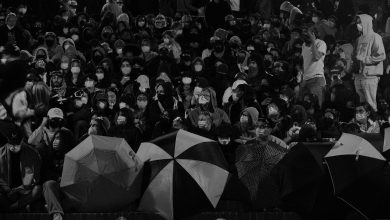But You Chose for It

Image by Emma Lehman
As a woman, I personally feel that freedom of choice is one of the most liberating rights a woman can ask for. It lets her be her own master — today, she supposedly ‘have a say’ in whether and not, and if yes, then to what extent, she wants to indulge in marriages, babies, sex work, fashion, dieting, and career, among other things.
Ruth Bader Ginsburg, Associate Justice of the Supreme Court of the United States says it best: “Women belong in all places where decisions are being made.”
In reality, this concept is not as binary as a choice-no-choice dichotomy. The power to choose comes with complex responsibilities. So, when the misconception that more choices will mean more freedom starts to develop in a culture, it ends up putting uneven burden on the woman’s shoulders.
Yes, it is true that to a certain extent, choices make a woman less confined. But the idea that an infinite set to pick from will result in infinite freedom is simply redundant. For example, women are held responsible for not getting out of abusive relationships. In fact, a study showed that people view an assault against an intimate partner as less serious than an assault against a stranger, even when the same level of force is used. Responses by public and professionals make it more difficult for the victims to leave, especially when the responses include waving the offense off as less serious or not believing the victim at all. The basis of blame, again, is that women had all the choices in the world. They could have gotten out whenever they wanted, and been with whoever they wanted. Even worse, the survivors are told how “if it were me, I would have just left,” which only increases their shame.
Nowhere in this entire scenario is the mention of the context in which the woman lives. There are a plethora of reasons for why women don’t “just leave,” like cultural stigmatization, familial scorn, danger of leaving, unavailability of other resources like medical care or appropriate counselling services, a hope that the partner will change, fear of isolation, influence of children, or financial constraints. Regardless of the reason, what the woman needs is someone to tell her that she’s not crazy, that she’s not alone in this and that she’s still loved and supported in any decision she takes. She doesn’t need finger-pointing arguments of do-or-die, or a count of how many choices she has. There are many more factors that influence regular day-to-day decisions than just the availability of a certain answer or choice.
One can see that focusing on women’s choices as the answer to all feminist issues results in nothing but individualized victim-blaming and putting all burden on the woman’s shoulders. It distracts from the real issues and relieves the role of society in designing an environment where a woman’s choices are better respected and supported. Discriminatory emotional labor is not just mitigated by wider arrays, it requires room for picking from those arrays.




